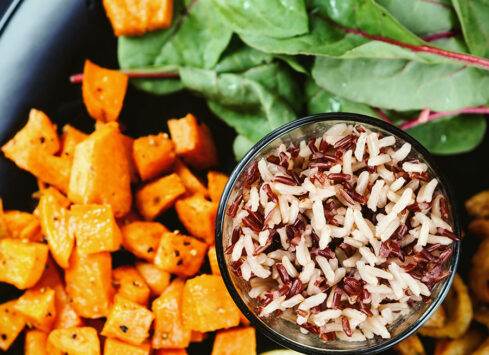Holiday Cooking for Chronic Conditions
The holiday season is a wonderful time of year for many reasons! Food plays an important role in the festivities and helps bring people together. Unfortunately for many, however, the food and drink they will be partaking in this time of year can have unintended consequences. Those with chronic health conditions may need to follow special diets and the following common ingredients may need to be modified:
Salt- An easy way to lower the salt in your recipes is to prepare holiday meals at home. If a recipe calls for salt, try using cinnamon, allspice, or nutmeg instead. Herbs and spices such as rosemary, cloves, and basil can also be used as a salt substitute. Try to avoid using canned foods when possible- for example, use fresh or frozen green beans for your casserole instead of canned. If canned foods must be used, lower sodium or salt-free options are available. Put salt shakers away while your family visits and offer other toppings such as freshly ground black pepper, Mrs. Dash, or lemon slices. Also use low-sodium or sodium free broths.

Saturated fats- This fat is easy to overdo with all of the meats, butter and pies available for the holidays. Instead of the butter in baked goods, try using unsweetened applesauce or mashed ripe bananas. Choose leaner meats such as turkey, roast beef, fresh ham, or even fish such as cod or flounder, instead of fattier meats, including steak, beef ribs or brisket, ground beef, pork shoulder, salami, and sausage. Regardless of the meat, make sure to trim any fat before cooking. For vegetarian options, try beans and legumes in place of the meats, such as chickpeas, split peas, black beans, and kidney beans. You can also use heart healthy cooking oils such as olive or canola to cut back on the saturated fats. Offering healthier dessert options such as fresh fruit with light whipped cream will help to avoid the fat content of the pies. Provide skim or 1% milk instead of 2% or whole. Instead of frying, consider baking, grilling, or steaming.
Sugar- Everyone has a favorite dessert they must have during the holidays! Fortunately there are easy ways to cut back on the amount of sugar while still maintaining deliciousness. Instead of sugar, try a lower-calorie or no-calorie sugar substitute in your desserts. Offer low-calorie and sugar-free drinks, while avoiding regular sodas, juices or sweet tea. Water with infused herbs and cut fruits will add a better alternative. Be sure to serve plenty of simple sides using veggies such as squash, green beans, mushrooms, carrots, and brussel sprouts.
These tips can help your loved ones with chronic conditions stay healthy during a tempting time of year. You do not necessarily need to make “special dishes” for them, as cooking for a particular diet can be just as appetizing as a regular diet. Be supportive of your family member and do not push them to eat more food than needed. If they get off track, gently and privately encourage them to stick with their diet. That way you can ensure you and your family have a happy and healthy holiday this year.
Brittany Ferguson, RD, LD, is a registered dietitian at Northwest Medical Center in Bentonville, AR. She graduated from the University of Arkansas in 2012 with a Bachelor’s degree in Dietetics and a minor in German, and completed her dietetic internship in Durham, NC.She has been with Morrison Healthcare for over two years and enjoys working in the inpatient setting where she feels she is able to make a positive impact on her patients.




